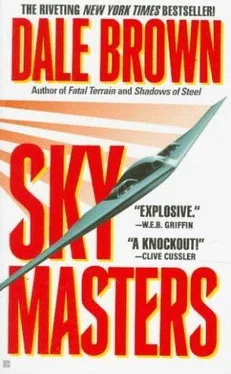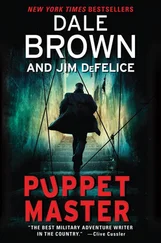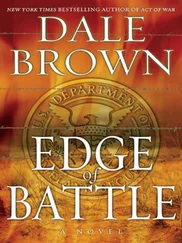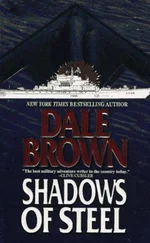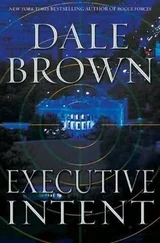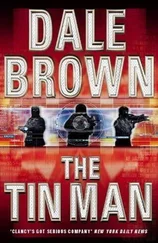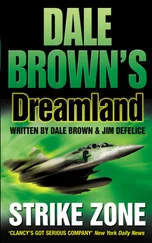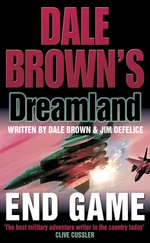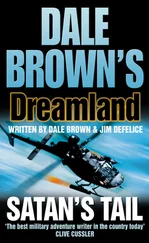Dale Brown - Sky Masters
Здесь есть возможность читать онлайн «Dale Brown - Sky Masters» весь текст электронной книги совершенно бесплатно (целиком полную версию без сокращений). В некоторых случаях можно слушать аудио, скачать через торрент в формате fb2 и присутствует краткое содержание. Жанр: Старинная литература, на английском языке. Описание произведения, (предисловие) а так же отзывы посетителей доступны на портале библиотеки ЛибКат.
- Название:Sky Masters
- Автор:
- Жанр:
- Год:неизвестен
- ISBN:нет данных
- Рейтинг книги:4 / 5. Голосов: 1
-
Избранное:Добавить в избранное
- Отзывы:
-
Ваша оценка:
- 80
- 1
- 2
- 3
- 4
- 5
Sky Masters: краткое содержание, описание и аннотация
Предлагаем к чтению аннотацию, описание, краткое содержание или предисловие (зависит от того, что написал сам автор книги «Sky Masters»). Если вы не нашли необходимую информацию о книге — напишите в комментариях, мы постараемся отыскать её.
Sky Masters — читать онлайн бесплатно полную книгу (весь текст) целиком
Ниже представлен текст книги, разбитый по страницам. Система сохранения места последней прочитанной страницы, позволяет с удобством читать онлайн бесплатно книгу «Sky Masters», без необходимости каждый раз заново искать на чём Вы остановились. Поставьте закладку, и сможете в любой момент перейти на страницу, на которой закончили чтение.
Интервал:
Закладка:
“But if they are invited by the Philippine government? Do we have any right to go in with military force to try to remove them?” Secretary of Defense Preston asked. “If they pose no direct threat to free trade and free access to the South Pacific or Southeast Asia, why do we want them out of the Philippines?” “What do you mean… ? Of course we have the right to remove them from the Philippines, ” President Taylor said. “They’re a destabilizing force, a military and political threat to the democracies in the area. Aren’t we in agreement on this?”
“I don’t think there is any question about that, ” Danahall said. “A three-way balance of power-us, the Soviets, and the Chinese-offers the best stability. Reduce it to one nation and the Cold War heats up all over again.” Curtis said, “But Secretary Preston’s point is valid, sir. We might not have any legitimate right to try to bump the Chinese out unless we can prove that the invasion is not in our best interests or unless we are asked to intervene.”
“We have every right to make demands on the Chinese, ” Cesare interjected. “They don’t own the South China Sea. No nation can just move in and occupy another country.”
“Exactly, Paul, ” the President said, “Mikaso was our friend and ally. I’m sure he didn’t give his life to allow the Chinese to march into his capital and take over his country.”
“Curtis and Preston have a point, Mr. President, ” Danahall said. “If the present government-even Teguinasays he invited China in to quell some sort of national uprising, that forces us into a defensive situation. We have to explain to the world why we want to send troops in.”
“We’re always put in a position to defend our actions, ” the President scoffed. “What else is new?”
“That’s often true, Mr. President, ” Danahall said. “But we’ve got to try to work in concert with other countries-the more we try to go it alone, the more we’re accused of bullying and imperialism. We should get some interested countries involved and get them to ask for our help.”
“Like who?” “ASEAN, for example, ” Danahall replied. “Most or all of the ASEAN nations have had territorial arguments with ChinaASEAN was developed as a counterweight to Chinese aggression. And then there are things we can do to advance our own military position without unnecessarily provoking the Chinese or alienating ASEAN…”
“Well, sending in a second carrier battle group and a Marine Expeditionary Unit seems pretty provocative to me, Cesare said. “I think that action can be fully justified in the context of a nuclear-armed Chinese naval group that has moved into the South China Sea. I mean it’s right in the heart of ASEAN, ” Curtis replied. “So would sending in the Air Battle force for support “I don’t want to send in the damned B-52 bombers, ” the President grumbled. “Sending them in would be tantamount to saying we want a nuclear exchange. Christ, Curtis. “Sir, the biggest threat facing our carrier battle group in the South China Sea is not sea-based threats, but land-based threats, ” Curtis argued. “Heavy bombers and large antiship weapons launched from shore could devastate the fleet . “You said that already.”
“The same argument applies to the Chinese, sir. Even a small squadron of Harpoon-equipped B-52s could devastate a Chinese surface action group-each bomber could destroy two to four vessels, with minimal risk to themselves.” The point, however grudgingly, was made on the President. “So what can the Air Force do?” the President asked after a brief pause. “We don’t have bases in the Philippines . “We’d operate out of Guam, sir, just like STRATFOR is doing, ” Curtis replied. “We’d deploy the First Air Battle Wing and have the manpower and equipment out there on hand for both fleet defense, sea interdiction, and ground attack. I’m not asking for permission to send the entire Air Battle Wing, sir, ” Curtis concluded. “We’ll need time to set up-at least five to six days. But General Elliott of HAWC has devised a special combat-information exchange system aboard several of his aircraft-including several modified B-52s and a B-2 stealth bomber-that could be extremely valuable to us if the shooting starts. I’m requesting permission to send Elliott and one aircraft, the stealth bomber, to Guam-under absolute secrecyto help get things set up.”
“Elliott?” the President asked, rolling his eyes. “Brad Elliott? He’s involved in this… already?” Curtis went slowly, calmly, trying not to inflame the President any further. “It was his Center’s satellite system-PACER SKY-that got the photos of the Chinese ship launching the nuclear missile at the Philippine Navy. We want to expand that same satellite system on all the Air Battle Force aircraft. “But why send a B-2?” the President asked. “The B-2 is a part of the Air Battle Force now, sir, ” General Curtis explained. “It requires a lot more security and a bit more ground-support pre-planning. In addition, this particular B-2 was General Elliott’s prototype with the full PACER SKY satellite system installed. It also has greatly enhanced reconnaissance and surveillance capabilities that we will need immediately if the Air Battle Force is activated.” The President thought about the proposal a bit, then, with a weary and exasperated sigh shook his head. “Listen, Wilbur, I can’t decide on any of that now. Continue with current directives and keep me advised. I’ve got some thinking to do.”
“Sir, may I?” “Save it, Wilbur. Thank you.” The meeting was definitely over. RESIDENCE OF THE PREMIER, BAIYUNGUAN TERRACE BEIJING, REPUBLIC OF CHINA THURSDAY, 29 SEPTEMBER 1994, 0602 HOURS LOCAL (WEDNESDAY, 28 SEPTEMBER, 1702 HOURS WASHINGTON TIME) The streets were still relatively empty as the small motorcade of dark, unmarked cars raced down Shilibao Avenue westward past Tian’anmen Square, then north past Yuyan Tan People’s Park toward the Premier’s residence in Baiyunguan Terrace, a complex of residences, green rolling hills, parks, and temples built especially for the Communist government leaders. Outer security at the twisting single-lane entrance was provided by a single unarmed guard who would politely point and describe the complex to tourists and children and even offer to take pictures for visitors; inside the narrow portal, however, was a detail of three thousand heavily armed soldiers, hand-picked by Premier Cheung Yat Sing himself, that guarded the sixtyacre complex. Once inside the complex, the motorcade sped past willowlined streets and meticulously tended sidewalks as they curved upward toward the center cluster of buildings, the private residence of Premier Cheung. The motorcade came to a sudden halt underneath a long breezeway, and the limousine’s occupants hurried inside the reception hall. If they had paused to look, they could have seen one of the grandest vistas in all Beijing-Yuyan Tan Lake to the west, the expansive Peking Zoo to the north, and the massive brick monuments of the Imperial Palace and Tian’anmen Square to the east, now glowing fiery crimson in the rising sun. But the limousine’s occupants were hustled directly inside and to the immediate meeting with the Premier himself in his private office. Leing Yee Tak, ambassador to China from the Republic of Vietnam, hardly had time to remove his shoes before none other than Premier Cheung himself entered the office, along with members of his Cabinet. This was highly unusual: the Premier never met with lowly ambassadors, only heads of state or occasionally minister- or Cabinet-level officials. Leing waited until the Premier had taken his seat at the center of a long dark granite table, then bowed deeply and approached the table. Cheung immediately offered him a seat with a gesture, and Leing sat. His interpreter aide remained standing behind him. Cheung was old, incredibly old even for a Chinese politician. The ninety-one-year-old leader of the world’s most populous nation still moved fairly well without assistance, although two burly Chinese Marines were on hand to help him in and out of his chair. His hair was dark, obviously dyed at the insistence of his advisers or from some deep-seated vanity, but his face was deeply etched from age and his fingers gnarled from arthritis. But Leing had been taught from his first days in the Vietnamese Socialist Party and the People’s Foreign Ministry that the eyes were the giveaway-Cheung’s eyes were still gleaming, still quick, still alert. Despite rumors to the contrary, Cheung still appeared to be in charge… But after quickly scanning the faces of the other Cabinet members, perhaps not. The Chinese Foreign Minister, Party Counsel, and Minister of Commerce were present, but the Ministers of Interior, Finance, Defense, and Industry were all replaced by their military counterparts. This was a military tribunal represented here, not a peacetime government. And Leing knew well the Supreme Commander of the People’s Liberation Army, High General Chin Po Zihong. Chin was young for a Chinese government official-sixty-seven, if Leing remembered correctly-but he appeared to be half that age. He was a short, barrel-chested, dark-haired Mongol that instantly reminded one of how the Mongol hordes of centuries past had struck fear into the hearts of soldiers throughout Europe and Asia. Unlike most other high-ranking military officers, Chin wore few accoutrements on his plain, dark grey uniform. He didn’t need ribbons and badges to demonstrate his power and authority to others. Cheung spoke, and afterward his interpreter said, “The Premier extends his government’s greeting to Comrade Leing. The Premier wishes to know if there is anything that would make the ambassador from the Republic of Vietnam more comfortable.”
Читать дальшеИнтервал:
Закладка:
Похожие книги на «Sky Masters»
Представляем Вашему вниманию похожие книги на «Sky Masters» списком для выбора. Мы отобрали схожую по названию и смыслу литературу в надежде предоставить читателям больше вариантов отыскать новые, интересные, ещё непрочитанные произведения.
Обсуждение, отзывы о книге «Sky Masters» и просто собственные мнения читателей. Оставьте ваши комментарии, напишите, что Вы думаете о произведении, его смысле или главных героях. Укажите что конкретно понравилось, а что нет, и почему Вы так считаете.
